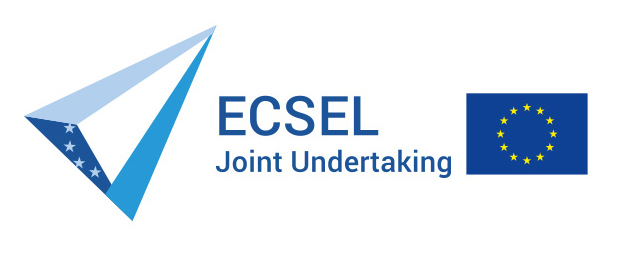The UOC participates in an EU project to design cloud-based cyber-physical systems for various sectors including medicine and wastewater treatment
Researchers from the UOC are developing software models for critical sectors including medicine, self-driving vehicles, and the control and management of services such as wastewater treatmentA key factor is the exploitation of software models to achieve maximum security and faster development and implementation

As society becomes increasingly interconnected, data security and control, especially in critical sectors such as medicine, self-driving vehicles, and wastewater treatment, are ever more important for companies and public authorities. The protection of these systems must, however, be simple to develop and implement, without the slightest loss of security.
This is one of the aims of the TRANSACT project, in which thirty partners from around Europe are taking part, including the Universitat Oberta de Catalunya (UOC), together with companies such as Phillips and Navtor, and the Eclipse Foundation, a leading global open-source software foundation.
"This project is about knowledge transfer and the application of new technologies for basic systems that are usually localized and stand-alone, as they have extremely high security and privacy standards, potentially compromising efficiency when it comes to their management and control. The aim is to redesign and build on existing open-source applications so these systems can be moved to the cloud without risk," explained Abel Gómez, researcher at SOM Research Lab and one of the project leaders, together with Jordi Cabot, ICREA research professor and SOM Research Lab group leader at the UOC's Internet Interdisciplinary Institute (IN3).
Open-source software makes these applications easier to implement, as it is freely distributable and can be analysed, so organizations considering using it can modify it and adapt it to their needs. According to Gómez, "Applications like these enable us to enhance communication, computation, storage and control tasks. The use of open-source software doesn't imply a loss of security or privacy, it just means it is accessible, so it can be adapted to the specific needs of each application."
Edge computing
Migrating critical cyber-physical systems, such as radiation control systems in health centres or wastewater analysis services, is not an issue-free process: cloud computing implies longer response times, as the servers are further away, and greater exposure to attacks by hackers. Special care must be taken, therefore, to ensure that cloud-based systems can safely handle all this critical information. This is a highly complex task.
The answer to this issue lies in edge technologies, IT and communication infrastructures that straddle the barrier between local networks and the cloud, allowing them to access the computational power of the cloud while minimizing exposure to security breaches. In line with the goals of TRANSACT, therefore, the new improved systems can use stand-alone resources for highly critical data that must be processed in real time, edge technologies when the data are critical but have greater computational or storage requirements, and cloud-based resources for less critical data, thereby freeing up local and edge resources. The use of all three infrastructures helps to streamline and speed up analysis and computing processes, improving access to data and response times.
The UOC researcher explained the team's role: "we will be modelling the infrastructure and defining interfaces so the different systems can communicate effectively and securely through specific domain languages. We will also be helping to develop open-source software under the leadership of" a centre for applied R&D in Valencia."
The entire European project is still in the process of being defined, but the goal is to have applications implemented within three years for cyber-physical systems with high security and privacy requirements.
The Eclipse Foundation is responsible for project communication and will help the consortium to turn innovative project outcomes into successful and sustainable open-source software with a vibrant community of developers and early adopters.
This UOC research supports Sustainable Development Goals (SDGs) 9, Industry, Innovation and Infrastructure, and 11, Sustainable Cities and Communities.
This project has received funding from the ECSEL Joint Undertaking (JU) under grant agreement No 101007260. The JU receives support from the European Union's Horizon 2020 research and innovation programme and from Austria, Belgium, Denmark, Germany, Finland, the Netherlands, Norway, Poland and Spain.

UOC R&I
The UOC's research and innovation (R&I) is helping overcome pressing challenges faced by global societies in the 21st century, by studying interactions between technology and human & social sciences with a specific focus on the network society, e-learning and e-health.
Over 500 researchers and 51 research groups work among the University's seven faculties and two research centres: the Internet Interdisciplinary Institute (IN3) and the eHealth Center (eHC).
The University also cultivates online learning innovations at its eLearn Center (eLC), as well as UOC community entrepreneurship and knowledge transfer via the Hubbik platform.
The United Nations' 2030 Agenda for Sustainable Development and open knowledge serve as strategic pillars for the UOC's teaching, research and innovation. More information: research.uoc.edu #UOC25years
Press contact
-
Editorial department

